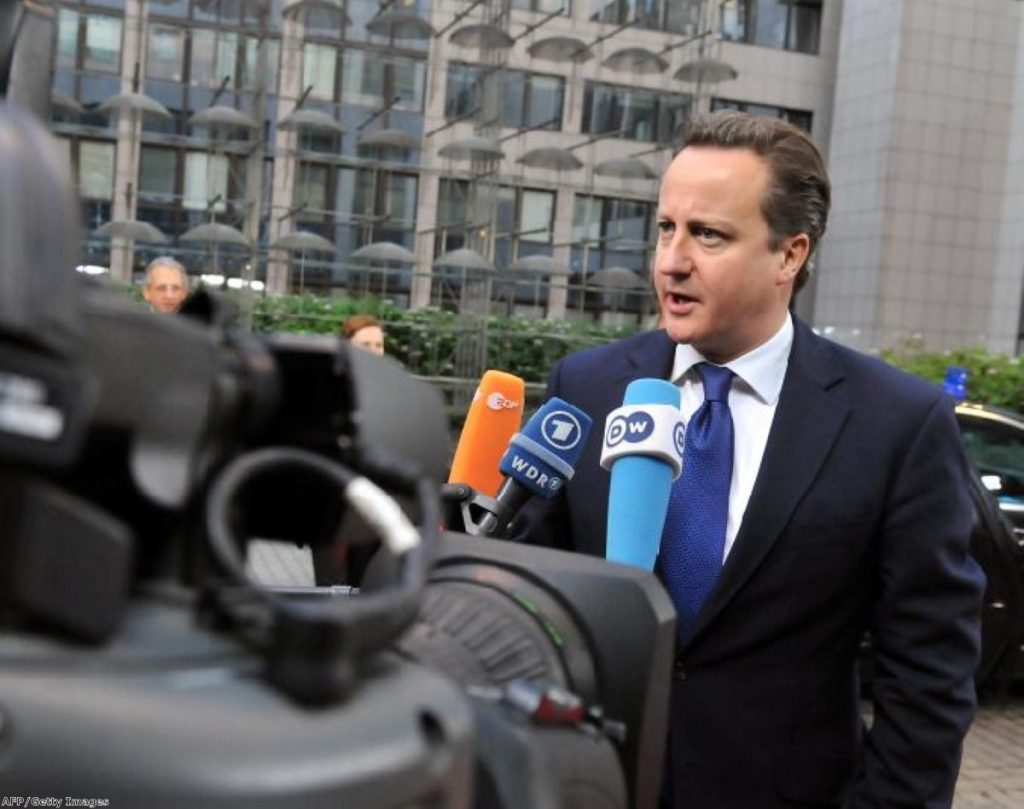No-score draw as EU budget talks fizzle out
European leaders have admitted defeat after a two-day summit attempting to secure agreement on the EU budget ended in failure.
Bitter divisions over the size, shape and structure of European Union spending limits for the 2014-20 period were resolved after yesterday's opening offers.
EU leaders had been seeking to agree spending caps, but after bilateral meetings yesterday and talks this afternoon it was soon clear that the divisions were too large to be overcome.
Britain can claim some success from the week, having gained a significant ally in Germany. Chancellor Angela Merkel and prime minister David Cameron held bilateral talks earlier today, winning stronger support for the UK's call for a real-terms freeze from Berlin.


Prime minister David Cameron summed up the situation in a press conference this afternoon, saying: "We've not got a deal, but we've not got an unacceptable deal either."
An official statement released as the summit broke up stated: "The bilateral talks and the constructive discussion within the European council show a sufficient degree of potential convergence to make an agreement possible in the beginning of next year.
"We should be able to bridge existing divergences of views. A European budget is important for the cohesion of the union and for jobs and growth in all our countries."
Individual countries offered more defiant perspectives, however. Holland's prime minister called for a 100 billion euro cut to the 973 billion euro budget proposed by European Council president Herman Van Rompuy.
Britain is seeking a real-terms freeze in total EU spending and the preservation of the UK's rebate, which in 2011 kept Britain's contribution down from 10.9 billion euros to 7.3 billion euros.
"I am in favour of a compromise, it is what is in the interests of Europe," French president Francois Hollande said.
He added the EU was "faced with countries who claim back their cheques without any reduction" and warned: "I will be firm with everyone that participates in this contribution."
A UK offensive against the cost of maintaining European officials, proposing a series of measures which would see their pay and pension costs cut, met with little support.
The UK's approach clashed with the agendas of the 17 EU member states which are net recipients and therefore back the European Commission's proposed increase.
"There hasn't been the progress in cutting back proposals for additional spending," Cameron complained earlier.
"It isn't the time for tinkering. It isn't the time for moving money from one part of the budget to another."
Experts have warned that the chances of a deal will decrease next year as Germany's election season approaches.
Concerns about German divisions with France, which is keen to see EU spending increase, are being viewed as a growing problem at the heart of Europe.
If no agreement is reached before the end of 2013 then EU spending is rolled over on a month-by-month basis with a two per cent inflationary adjustment – an outcome which would result in an increase in the total size of EU spending.
"I am not in a hurry," Swedish prime minister Fredrik Reinfeldt said of the current negotiations. "It will take a long time."

